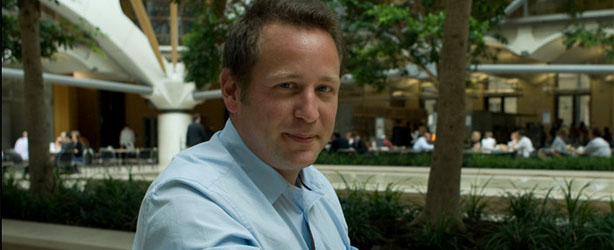Digital Economy Act Judicial Review Analysis
April 22, 2011 | 09:34
Companies: #government #open-rights-group

Understanding the Problem
'I'd advocate to try and understand the situation a little bit more thoroughly,' says Bradwell (of the Open Rights Group). 'The first thing to do is to try and spend a bit more time understanding what this problem looks like, what kind of behaviour needs to be tackled and what kind of behaviour has what kind of consequences, because I think it's simply not the case that we've proved what kind of behaviour is a problem, and what kind of specific measures will have the desired outcome socially and economically. I think politicians have been far too quick to take industry figures as read, and they haven't spent enough time thinking it over properly.'Is the problem that politicians don't understand how the Internet works? 'I think it's probably unfair to say that.' says Bradwell, 'you can't blame politicians for not understanding what is an incredibly technically complex issue. What you can say is that they should spend enough time talking to people that do. They just didn't spend enough time or brainpower thinking about what the problem looks like, what a good solution would be and the consequences of those decisions. They didn't spend enough time talking to people who did understand technology and the consequences of certain technical measures.'

The Open Rights Group argues that the Digital Economy Act is a form of censorship
Understanding the problem isn't just about talking to ISPs and content providers, says Bradwell, but consumer rights organisations need to be involved as well. Back in February, details of meetings between content providers, ISPs and MPs emerged, where they were discussing making the DEA more 'palatable.' Companies such as BT, Google and Universal were represented, as well as the minister for culture, Communications and Creative Industries, Ed Vaizey, but there was a notable absence of anyone presenting the opinion of consumers – the people who arguably have the most to lose from the bill.
'It's really frustrating to have to learn about these things through leaked information and letters,' says Bradwell, 'because if you're talking about web blocking you're effectively talking about a scheme that's some sort of censorship; where you're deciding what information people are allowed to see and what they can have access to. It's difficult to see how meetings that only involve copyright holders and Internet companies can adequately address those issues, and adequately think about consumer protection and the fundamental rights protection that would be necessary to give proper oversight to a censorship scheme.'

According to the Open Rights Group, minister for culture Ed Vaizey has promised
that consumer representative groups will be included in future discussions
However, Bradwell says that the Open Rights Group has since written to Vaizey, who has promised that consumer representative groups will be included in future discussions. 'He also asked Ofcom to look at the technical suitability of these things,' says Bradwell, 'so we're hopeful that he listens to those voices, and takes those very serious concerns on board, but at the moment we're not a part of those discussions.'
'We may have lost this battle' says TalkTalk in its official statement, before adding that it 'will continue fighting to defend our customers’ rights against this ill-judged legislation.' Similarly, Bradwell says that the Open Rights Group still believes that the DEA 'represents a bad policy choice, and we'll continue to argue that it impacts privacy and access to the Internet for no proven gain.'
Are you likely to be affected by the measures in the Digital Economy Act? Are there better ways of dealing with piracy? Let us know your thoughts in the forums.

MSI MPG Velox 100R Chassis Review
October 14 2021 | 15:04








Want to comment? Please log in.